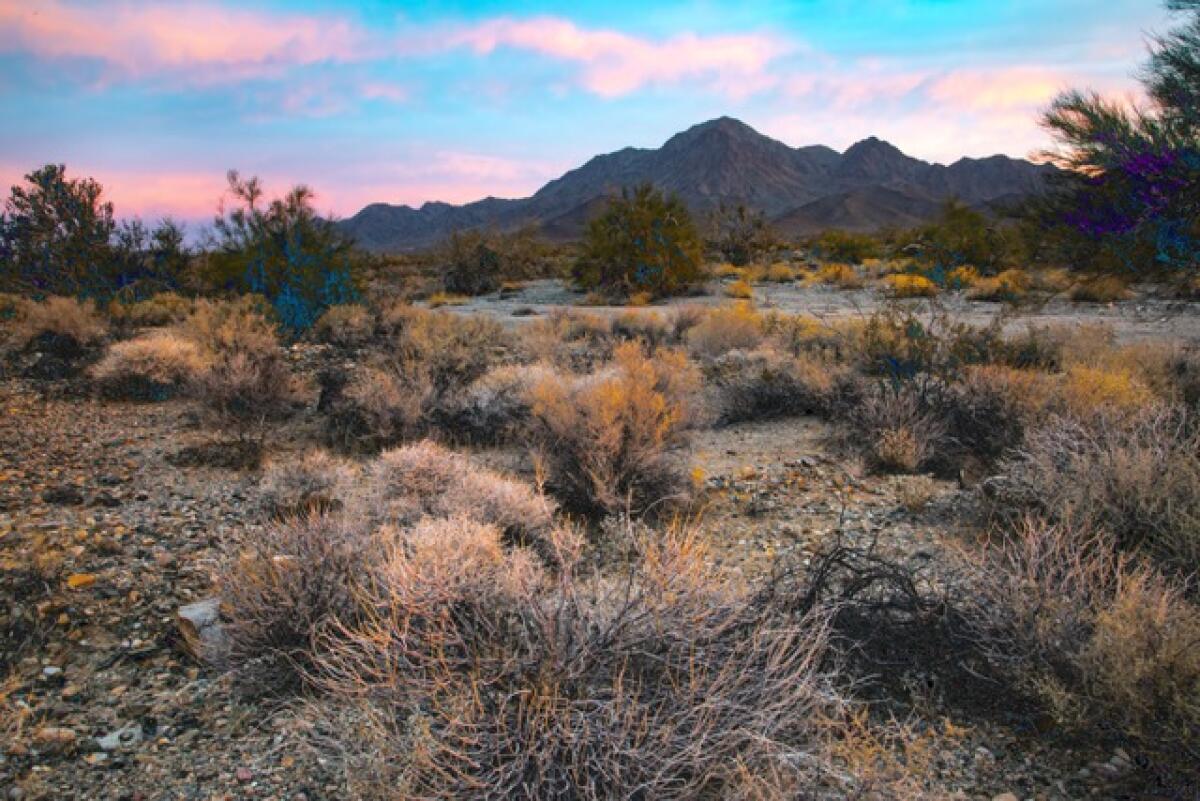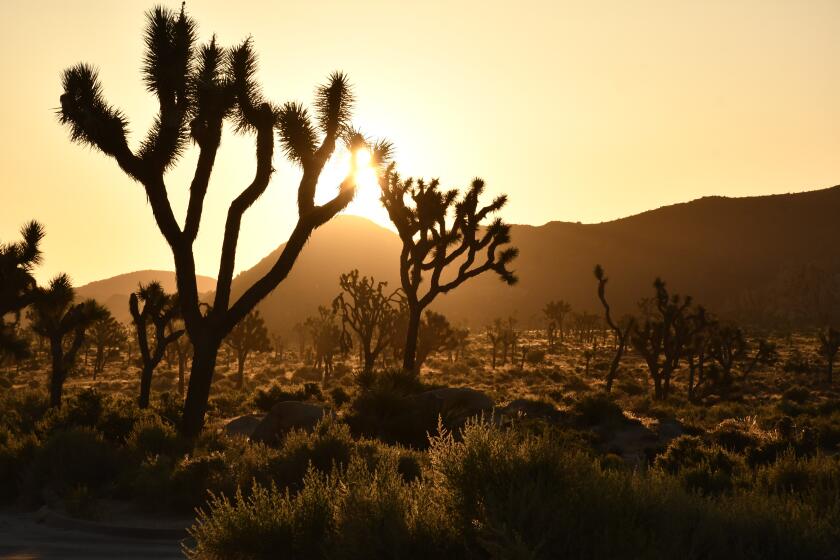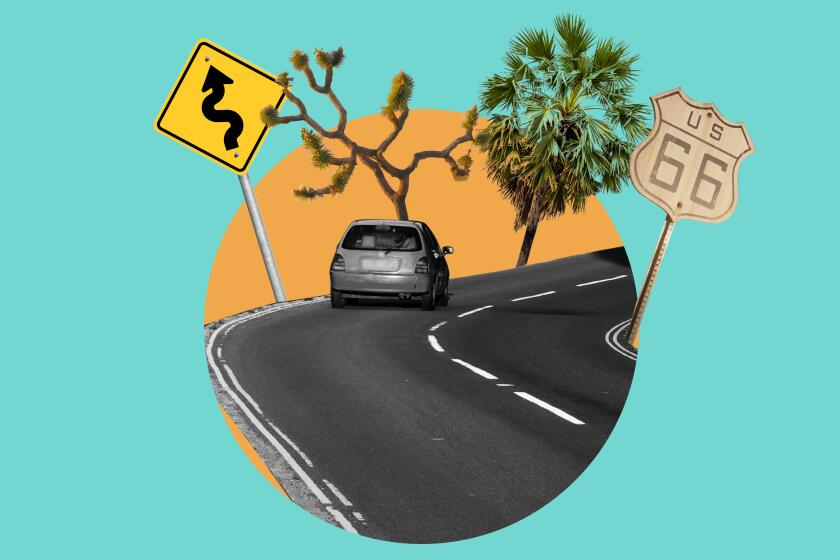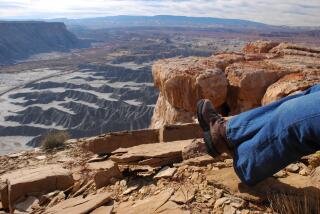Opinion: California’s majestic desert must be preserved. This proposal can help

As the former superintendent of Joshua Tree National Park — and a 38-year career employee for the National Park Service — I have seen the undeniable benefits that come with conserving our public lands. Nowhere has this become more clear than in the California desert, where conservation efforts have nurtured a growing and sustainable outdoor recreation community and economy. A new proposal to establish the Chuckwalla National Monument and protect public lands adjacent to Joshua Tree National Park is the next step in continuing these endeavors.
Proposed by Rep. Raul Ruiz (D-Palm Desert), the Chuckwalla National Monument and Joshua Tree National Park extension would encompass roughly 660,000 acres of public land in the California desert. The designation would help ensure more equitable access to nature for residents of the Eastern Coachella Valley, Blythe and other local communities. Already, these lands are beloved for outdoor activities such as hiking, picnicking, stargazing and recreational off-highway vehicle use. Elsewhere in the California desert, public lands conservation that supports similar activities has led to visitor spending that directly benefits the economies of nearby communities.
In Los Angeles, disruptions kept me from my writing. But after a year in a cabin near Joshua Tree, coyotes keep me company and my fearlessness grows.
The proposed monument would also help safeguard the ecologically rich but vulnerable Colorado Desert bioregion. Conserving this area will protect important wildlife and plant habitats, including those necessary to support the desert tortoise, desert bighorn sheep and the Mecca aster, among others. The monument would also conserve critical wildlife corridors between Joshua Tree National Park and other protected areas such as the Palen/McCoy Wilderness. Additionally, the region’s undisturbed desert lands are increasingly valued for their important role in sequestering atmospheric carbon, a key contributor to global climate change.
The lands proposed for protection include the homelands of the Iviatim, Nüwü, Pipa Aha Macav, Kwatsáan and Maara’yam peoples (Cahuilla, Chemehuevi, Mojave, Quechan and Serrano nations). The proposed monument would preserve this cultural landscape by protecting important heritage values, sacred sites and objects, traditional cultural places, plants and wildlife.
More and more people are arriving in the towns along Highway 62 near Joshua Tree National Park. In their eagerness to feel those desert vibes, they’ve set off a full-blown boom.
The timing for this effort could not be better, as support for public land conservation is steadily growing throughout the West in general. The 2023 Colorado College Conservation in the West Poll shows that more than 80% of voters across eight Western states support the “30×30” goal of protecting 30% of U.S. lands and waters by 2030. Additionally, the proposed national monument would help advance California’s own “30x30” goals.
At a time when conserving nature and meeting renewable energy goals are critical, a Chuckwalla National Monument would accomplish both. It is complementary to the goals of the Desert Renewable Energy Conservation Plan, a multi-year collaborative process that identifies areas suitable for renewable energy development and lands important for conservation. The proposed monument avoids lands suitable for energy projects and it protects areas that are important to conserve for their biological, cultural and historic values.
President Biden is on track to protect more land than any other first-term president in modern American history. To date, he has responded to calls to safeguard public lands near the Grand Canyon, in southern Nevada and elsewhere. Biden should continue this work and designate Chuckwalla National Monument and protect lands adjacent to Joshua Tree National Park, helping to preserve some of California’s desert treasures.
Mark Butler is the former superintendent of Joshua Tree National Park and a 38-year career employee of the National Park Service.
More to Read
A cure for the common opinion
Get thought-provoking perspectives with our weekly newsletter.
You may occasionally receive promotional content from the Los Angeles Times.












